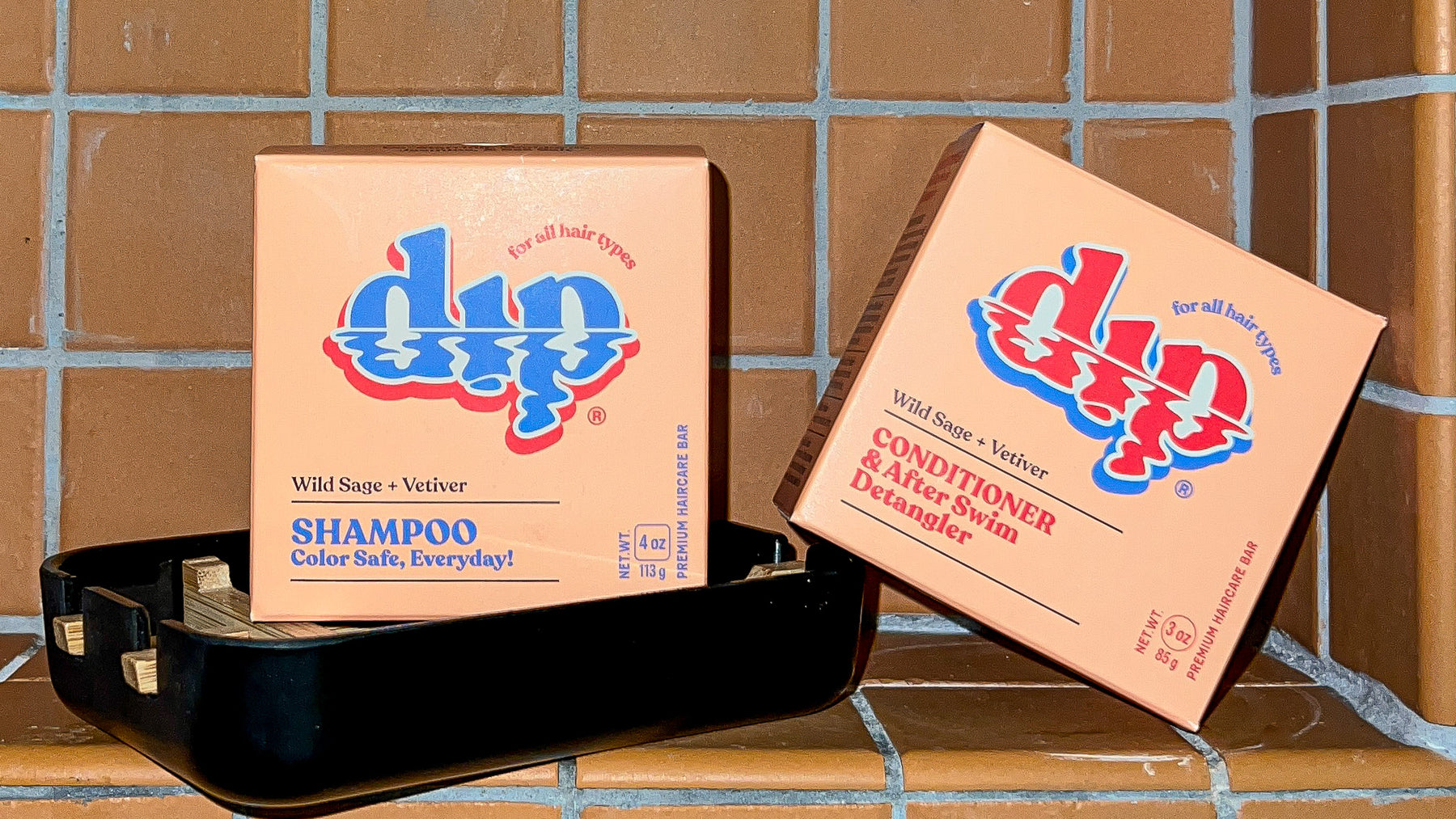
Why Dip Sticks to Independent Retailers (i.e. doesn't sell on Amazon)
Hey Everyone,
Kate from Dip Here, writing a guest post on the Ware blog :)
I want to tell you a little story about why as a brand, my company Dip is so hyper-focused on supporting independently owned stores like Ware.
Earlier this month, while exhibiting at the Surf Expo in Orlando, I was expecting lots of small surf stores around the country to flock to our booth. Of course some came, but the rumblings among the exhibitors was “where are all the indie store buyers?”
The sad news is: there are less and less every year.
You know who did come to our booth?
Six different Amazon vultures looking for new brands to bring onto the platform. When I explained that I wanted to keep our Dip shampoo and conditioner bars off of Amazon and in small stores like Ware, I was met with pity-loaded-laughter, mocked, and called “a charity worker”.
I'm pretty sure that was supposed to be an insult, but I’ll never hear it that way. :)
In a world dominated by e-commerce giants and sprawling retail conglomerates, our company has made a deliberate choice to steer clear of the Amazon.com juggernaut and big-box stores.
Instead, we've chosen to align ourselves with the heartbeat of communities – the small stores that dot the landscapes of towns and cities across the country.
In this blog, we delve into our unconventional reasons behind our decision and explore why small store owners are the antidote for inauthentic digital marketing in an oversaturated digital world. We partner with refill stores like Ware in Asheville, salons like Scisters in San Diego, and small surf shops like Gnarly Barnacles in NJ.
1. Local Love and Community Connections:
Dip’s commitment to local stores stems from a deep appreciation for the unique character they bring to their communities. Unlike impersonal online transactions or sterile big-box environments, local stores cultivate a sense of belonging and community connection. Building relationships with these establishments allows us to contribute to the vibrant tapestry of each locality. Gillie from Ware knows that if she needs me, I am a short text away.
2. Face-to-Face Transactions:
One of the key distinctions I want you to think of between small stores and online behemoths is the long-gone personal touch. When you step into a local shop, you're not just a faceless customer in a sea of orders. Small store owners have to look you in the face, understand your needs, and tailor their offerings accordingly. This face-to-face interaction creates a genuine and personalized shopping experience that is often lost in the digital realm. I know that Gillie and her team can look at someone's hair, and steer them the right way with our products.
3. The Authenticity Test:
This one is big for me. In an era saturated with phony advertising and influencer marketing, small store owners serve as the frontline defenders of authenticity. They can't rely on digital metrics alone; instead, they have to invest their dollars in products they genuinely believe in. This hands-on approach ensures that every item on their shelves has passed the authenticity test, offering customers a curated selection that reflects the store owner's commitment to quality.
4. Tried and Tested:
Unlike the vast inventory of online marketplaces, small store owners meticulously curate their offerings. They aren't simply clicking "add to cart" based on algorithms; they're physically trying and testing each item before it finds its place on the shelves. Do you know why Dip is on Ware's shelves? Because Gillie tested it and decided it was worthy of her customers. This dedication to quality assurance results in a selection of products that have been tried, tested, and approved by someone who cares about their customers' satisfaction.
5. Supporting Local Economies:
By choosing to partner with small stores, Dip actively contributes to the economic vibrancy of local communities. Supporting stores like Ware means supporting local jobs, fostering entrepreneurship, and ensuring that dollars circulate within the community, strengthening the local economy.
I trust Gillie to use her profits in an ethical way. I can't (and won't) ever say that about Jeff Bezos.
If it's still a mystery to you, that's ok--but I predict this is the year that people return to shopping small, trusting small, and making big changes.
Our decision to prioritize small stores over Amazon.com and big-box giants is rooted in a belief that genuine, community-driven commerce is the cornerstone of a thriving society. In an age where digital interactions can sometimes feel detached, small store owners remain the authentic and trustworthy purveyors of products that stand the test of time. Join us in celebrating the spirit of local businesses, where every purchase is a meaningful exchange that goes beyond the transactional.
Thanks for reading,
Founder & Chief Detangler at Dip :)

Leave a comment